Planning a trip to Thailand, or maybe even considering a long-term stay? One of the first steps is choosing the right Thailand visa to match your plans. Thailand offers a variety of visa types for different travelers, from short-term tourists to retirees, digital nomads, and business professionals.
Choosing the right Thailand visa type matters — it affects how long you can stay, the activities you’re allowed to do, and whether you can leave and re-enter freely. With the right choice of Thai visa types, you can avoid unexpected issues with immigration and focus on enjoying your time in Thailand without interruptions.
This guide covers the most popular Thailand visa types, providing an overview of each option’s requirements, application steps, and the potential consequences of not meeting visa conditions. Whether you’re visiting for a few weeks, starting a business, or planning to settle down, understanding these Thai visa types is key. Let’s dive in!
Thailand Tourist Visa
Planning to visit Thailand? If so, you’ll need to understand the Thailand Tourist Visa options that allow you to explore the country. Whether you’re staying for a quick trip or a longer vacation, it’s important to get your Thai visa sorted out so that you don’t run into any problems.
What are the Types of Thailand Tourist Visa
- Single-Entry Thai Tourist Visa: This visa lets you stay in Thailand for up to 60 days. If you want to stay longer, you can extend your visit for another 30 days at an immigration office, but make sure to apply for the extension before your initial period ends. Overstaying without an extension can lead to fines or even deportation.
- Multiple-Entry Thai Tourist Visa: This visa allows unlimited entries within six months. For each visit, you can stay up to 60 days. Like the single-entry visa, you can extend your stay by 30 days, but only if you follow the proper procedures.
What are the Requirements for a Thailand Tourist Visa?
To apply for a Thai tourist visa, you will need the following:
- A completed visa application form.
- A passport with at least six months of validity remaining.
- A recent passport-sized photograph.
- Proof of financial stability (10,000 THB for an individual or 20,000 THB for a family).
- A fully paid travel itinerary such as flight tickets.
- Proof of accommodation (hotel booking or private residence details).
Documents not in Thai or English must be officially translated and certified. If any documents are missing or incorrect, your visa may be delayed or denied, which could lead to complications.
Top Services provided by Siam Legal International, Thailand’s largest legal service network.
How to Apply for a Thailand Tourist Visa
To apply for a Thailand Tourist Visa, you need to submit your documents to the nearest Thai embassy or consulate. In some cases, you may be eligible for the Thai E-Visa, a faster online option that lets you apply without visiting the embassy.
If you fail to meet the visa requirements, you could be denied entry at the border or face serious issues during your stay in Thailand. Make sure you have all the necessary documents ready before you submit your application.
Thailand Visa on Arrival
If you’re from one of the 31 eligible countries or territories, you can apply for a Visa on Arrival at immigration checkpoints when you enter Thailand for tourism. This visa allows you to stay for up to 15 days. To apply, you’ll need a valid passport, proof of onward travel, and the visa fee, which must be paid in cash (in Thai baht) when you arrive.
Thai Visa Exemption
If you’re a national of one of 93 eligible countries, you can enter Thailand under the visa exemption program for tourism, business purposes, urgent tasks, or short-term work for up to 60 days. You may extend this stay by an additional 30 days, but this is entirely up to the immigration officer handling your application. If you want to stay longer, you’ll need to apply for a different type of visa before reaching the maximum stay of 90 days.
Thai 90-Day Non-Immigrant Visa
The 90-Day Non-Immigrant Visa is a great option if you’re planning to stay in Thailand for reasons beyond tourism such as business, education, or retirement. This visa allows an initial stay of up to 90 days and can be converted to a one-year visa for specific purposes like retirement or marriage, by applying for an extension through the Thai Immigration Bureau. You can apply by post, in person at a Thai Embassy or Consulate, or through the Thailand E-Visa portal, making the application process flexible.
Thailand Retirement Visa
If you’re 50 or older and want to spend your golden years in paradise, the Thailand Retirement Visa (Non-Immigrant OA Visa) is a straightforward way to do it. This visa allows you to stay in Thailand for a full year, and it can be renewed each year. But be careful — there are rules and requirements you need to follow to avoid losing your visa or facing penalties.
What are the Requirements for a Thailand Retirement Visa
To apply for a retirement visa, you need to meet these key requirements:
- You must be at least 50 years old.
- You’ll need to have 800,000 THB in a Thai bank account for at least two months before applying, or show proof of a monthly income of 65,000 THB.
- Alternatively, you can combine both savings and income to total 800,000 THB annually.
- A valid passport with at least 12 months of remaining validity.
- Proof of health insurance that meets the requirements set by Thai authorities.
If you fail to meet any of these conditions or provide incorrect or insufficient proof that you do meet them, you’ll be denied the visa, leaving your retirement plans in limbo. Worse, even if you’re in Thailand already, you could face deportation if your visa is canceled.
How to Apply for a Thai Retirement Visa
You can apply for a retirement visa through the Thai Embassy in your home country, or you can apply from within Thailand if you’re already here on another type of visa. Typically you must first apply for a 90-Day Non-Immigrant Visa, then extend it to the year-long retirement visa. The process involves:
- Submitting a completed application form.
- Providing your financial proof, either through bank statements or an income verification letter from your embassy.
- Supplying your health insurance documentation.
- Filing the necessary supporting documents like proof of residence in Thailand.
Once you have your retirement visa, you’ll need to report your current address to Thai immigration every 90 days. Missing these reports could result in fines, and if you leave the country without a re-entry permit, your visa will be canceled, forcing you to start the process all over again.
Thai Business Visa
If you are going to start a business in Thailand, want to get a job, or have recently been hired, the Thailand Business Visa (Non-Immigrant B Visa) is the standard visa option.
What are the Requirements for a Thai Business Visa?
To apply for a business visa, you’ll need to gather the following:
- A valid passport with at least six months remaining before it expires.
- A completed Non-Immigrant B Visa application form.
- A recent passport-sized photograph (taken within the last six months).
- Proof of sufficient funds: 20,000 THB if applying alone, or 40,000 THB if traveling with family.
- A letter of invitation from a company in Thailand or proof of employment.
For those applying to start and operate a business, you’ll need additional documentation to show the legitimacy of your venture such as corporate registration papers and a business plan. Without these, your visa application could be denied, leaving your business plans in limbo.
How to Apply for a Thai Business Visa
When you apply for a Thai Business Visa, you will need to submit documents to the nearest Thai Embassy or Consulate. Here’s what you need to do:
- Get an invitation or employment letter from the Thai company you’ll be working for.
- Gather all the necessary documents and apply for a 90-Day Non-Immigrant B Visa.
- Submit the application along with the visa fee (typically 2,000 THB for a single-entry or 5,000 THB for a multiple-entry visa).
Once you have your 90-Day Non-Immigrant B Visa, you can apply for a work permit while you’re in Thailand. Once approved, you’ll be able to extend your stay to one year by converting your visa into a 1-Year Non-Immigrant B Visa. Be aware that if you leave Thailand without a re-entry permit, your visa will be canceled, and you’ll have to start the application process from scratch.
Also, keep in mind that if you plan to stay longer, you’ll need to report to immigration every 90 days to keep your visa valid. Missing these reports could lead to fines or, in the worst case, visa cancellation.
Thai Marriage Visa
If you are married to a Thai citizen, the Thai Marriage Visa (Non-Immigrant O Visa) allows you to stay in Thailand long-term with your Thai partner. You will need to meet a set of requirements and provide documents when applying for the Thai Marriage Visa and when renewing it each year.
Requirements for a Thailand Marriage Visa
To apply for a marriage visa, make sure you have:
- Proof of marriage such as a Thai Marriage Certificate (Kor Ror 3) and Marriage Registration (Kor Ror 2).
- Financial stability: either 400,000 THB in a Thai bank account for at least two months before applying or a monthly income of 40,000 THB. The bank must confirm that funds were transferred from abroad.
- A valid passport.
- Recent passport-sized photographs.
How to Apply for a Thai Marriage Visa
When you apply for a Thai marriage visa, you will need to submit the following:
- Get a 90-Day Non-Immigrant O Visa at a Thai Embassy or Consulate outside of Thailand.
- Upon arrival, prepare your documents for converting the 90-Day Visa to a 1-Year Marriage Visa. This step needs to be done within the last 30 days of your 90-day stay.
- Submit the application for your visa extension at the Thai Immigration Office.
Once granted, the visa is renewable each year as long as you continue to meet the financial and marital requirements. You must report to immigration every 90 days with your address, or risk fines and even visa cancellation. If you plan to leave Thailand, apply for a re-entry permit to prevent your visa from becoming void.
Thailand Elite Visa
The Thai Elite Visa, also known as the Thailand Privilege Visa, offers long-term access to Thailand with added VIP benefits. If you’re looking to stay in the country for an extended period without the hassle of frequent renewals, extensions, or re-entry permits, the Thai Elite Visa is the most convenient and easy-to-acquire option. It comes at a higher price than other visa options, but also includes a massive selection of exclusive benefits and free perks, and is valid for 5-20 years.
What are the Requirements for a Thailand Elite Visa?
To qualify for the Thai Elite Visa, all you need is:
- A valid foreign passport.
- A clean record (no history of criminal convictions or bankruptcy).
Beyond that, there are no age, education, employment, or asset requirements, you just need to pay the membership fee. The cost for these visas ranges from 900,000 THB for a 5-year membership to 5 million THB for a 20-year membership. While it’s a hefty fee, it covers the luxury services you’ll get, and provides an easy application and a convenient long-term stay in the Kingdom.
How to Apply for a Thai Elite Visa
The application process is relatively easy compared to other long-term Thai visas:
- Submit an application to the Thailand Privilege Card Company or through an authorized General Sales and Services Agent (GSSA) like Siam Legal. GSSA services are 100% free.
- Undergo a background check, which typically takes 1 to 3 months depending on your nationality.
- Once approved, you’ll receive a membership ID and instructions on how to affix the visa to your passport.
The visa is valid for 5 years but can be renewed as long as your membership is active. With this visa, you don’t need to worry about the usual 90-day stay limit or re-entry permits — making it a hassle-free option for long-term stays. However, keep in mind that you must leave Thailand once a year, or file for an extension to avoid overstaying.
LTR Visa Thailand (Long-Term Resident Visa)
The LTR Visa Thailand offers a 10-year stay in Thailand for those who meet certain financial or professional qualifications. If you’re considering a long-term move, this visa is a convenient and financially beneficial option if you have significant assets, high income, or specialized skills.
What are the Requirements of the LTR Visa Thailand?
The Long-Term Resident (LTR) Visa is available if you fall into one of four categories. These categories each have specific requirements based on financial assets, income, or professional expertise.
If you meet the criteria for one of these categories, the LTR Visa offers a flexible path to long-term residency, allowing you to stay in Thailand for up to ten years. You only have to report to immigration once a year, and you don’t need to worry about re-entry permits or stay limits.
The LTR Visa is open to four main categories:
- Wealthy Global Citizens: You’ll need assets totaling at least 1 million USD and an annual income of 80,000 USD over the last two years, plus an investment in Thailand of at least 500,000 USD.
- Wealthy Pensioners: If you’re 50 or older, you must show a yearly income of 80,000 USD or 40,000 USD with a 250,000 USD investment in Thai government bonds, property, or businesses.
- Work-from-Thailand Professionals: Remote workers from well-established foreign companies need an annual income of 80,000 USD (or 40,000 USD with a Master’s degree, intellectual property, or Series A funding).
- Highly-Skilled Professionals: For those in specialized fields, an annual income of 80,000 USD (or 40,000 USD with a Master’s degree in a relevant field) and employment with a company in a targeted industry is required.
There is also a fifth category for dependents of LTR Visa holders. You can bring up to 4 dependents, a legal spouse and dependent children under 20, who can join your primary LTR Visa and get visas of their own. They will enjoy all the benefits that you do.
For all categories, applicants must also have health insurance with at least 50,000 USD in coverage or hold 100,000 USD in a Thai bank account. Without these, your application won’t be approved, potentially disrupting your long-term plans. Dependents of primary LTR Visa holders, however, only require 25,000 USD health insurance coverage each.
How to Apply for a LTR Visa Thailand
To apply for the LTR Visa, you’ll need to submit the necessary documents to Thailand’s Board of Investment (BOI) and complete a multi-step process. The application review takes around 4 to 8 weeks for BOI approval, after which you can pick up your visa either in Thailand or at a Thai Embassy or Consulate abroad.
The LTR Visa provides an entry permit that is initially valid for 5 years and can be renewed for another 5, giving you a total stay of up to 10 years. Staying compliant with requirements, including an annual residence report, is key to maintaining your visa status during your time in Thailand.
To apply for the LTR Visa:
- Submit your application with the required documents to the Thailand Board of Investment (BOI).
- Wait for the BOI to process and approve your application, which typically takes between 4 to 8 weeks.
- Once approved, you’ll need to collect your visa either in Thailand or at a Thai embassy or consulate overseas.
DTV Visa Thailand (Destination Thailand Visa)
The DTV Visa Thailand is a newer visa option tailored to digital nomads, freelancers, and long-stay visitors who want a flexible way to spend extended time in Thailand. With this visa, you can stay for up to 180 days per entry, and it’s renewable, making it ideal for those who work remotely and want to live in Thailand.
However, you must have a specific purpose in Thailand to qualify for this visa. You must be coming to Thailand to either:
- Work remotely as a digital nomad for a foreign company, for yourself, or on a freelance basis for foreign clients. Working for a local Thai company or freelance for Thai clients is not permitted with this visa.
- Participate in so-called “Thai Soft Power Activities.” These activities include:
- Muay Thai courses
- Cooking courses
- Long-term medical treatments
- Sport training
- Art or music festivals
Requirements for the DTV Visa Thailand
To be eligible for the DTV, you’ll need to meet these requirements:
- Be at least 20 years old
- Have no record of visa overstays or legal issues with Thai Immigration
- Show proof of 500,000 THB in liquid assets
- Provide proof of purpose in Thailand
- For remote workers: An employment contract with a foreign company, or a portfolio of freelance/self-employed work.
- For Soft Power Activities: A letter from the organizer of the activity confirming your enrollment or some other official confirmation of your participation.
You can also apply for DTV visas for your dependents (spouse or children under 20), but you’ll need to fill out separate applications and provide additional documentation, such as marriage or birth certificates. Missing any of these required documents could lead to a denial of your visa, forcing you to reapply from scratch.
How to Apply for a DTV Visa Thailand
To apply for the DTV:
- Submit your application at a Thai Embassy or Consulate, or apply online through Thailand’s official e-visa system. This visa cannot be applied for while in Thailand.
- Provide documents including your passport, proof of finances, and a payment of 10,000 THB for the visa fee.
The DTV allows you to stay for up to 180 days per entry, and you can extend it once per entry for an additional 180 days by visiting Thai Immigration in person and paying an extension fee. Be cautious about overstaying; it can result in fines or even future entry bans, which would complicate any plans to return to Thailand.
Get Professional Help for Your Thai Visa
Ready to secure your Thai visa and begin your new journey in Thailand? Contact Siam Legal today, and we’ll handle the essential paperwork, guiding you through each step for a successful application. With over 20 years of Thai visa consulting experience and expert support, you can trust us to make your visa process smooth and efficient, leaving you free to enjoy everything Thailand has to offer without immigration concerns.
LIVE SUPPORT
 CALLCall +66 2 254 8900 |  CHATChat with our representative |
Thailand Tourist Visa FAQs
What is the maximum time you can stay in Thailand?
This depends on your visa’s conditions. For example, with a tourist visa, you can stay in Thailand for up to 60 days from your arrival date (without an extension). For a non-immigrant visa, the maximum stay is 90 days. If you stay beyond the allowed period, you’ll be fined 500 baht for each day you overstay.
What happens if you overstay in Thailand for one day?
If you overstay your visa in Thailand by just one day, you’ll face a fine of 500 baht. Although a single day of overstay won’t usually result in a travel ban, repeated overstays could lead to restrictions on future visits to Thailand.
Is a visa required for citizens of all countries to enter Thailand?
No, citizens of certain countries don’t need a visa for short stays in Thailand. The United States, Canada, most European Union countries, and many others qualify under Thailand’s visa-exemption program. Additionally, some nationalities that do not qualify for visa exemption can instead enter under the Visa on Arrival scheme. For longer stays or purposes like work or study, however, a visa is usually required.
What is the difference between a tourist visa and a non-immigrant visa for Thailand?
A tourist visa allows short-term stays for tourism and leisure, usually up to 60 days with an option to extend. It doesn’t allow any employment or business activity. A non-immigrant visa, on the other hand, is intended for specific purposes such as business, work, retirement, studying, or family visits. Non-immigrant visas are available in different categories (e.g., Non-B for business, Non-O for dependents or retirees, Non-ED for education) and typically allow longer stays, with the possibility of extension to year-long versions. Some types may also permit work or other activities based on the visa category.
What is the processing time for a Thailand visa application?
The processing time varies by visa type and application location. For a standard tourist visa, it generally takes around 3-5 business days. Non-immigrant visas may require up to 10 business days. Factors like nationality, the specific embassy or consulate, and required documentation can impact the timeline, so it’s best to apply at least 1-2 weeks before your travel date to avoid delays.







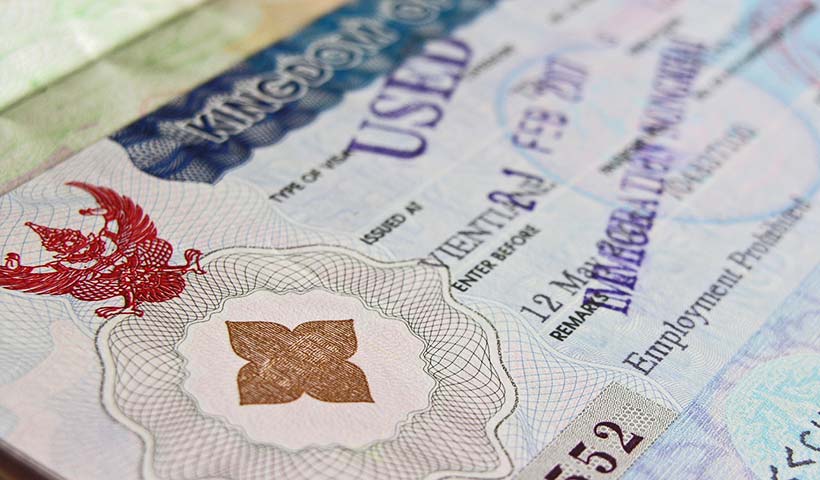



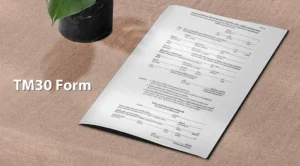
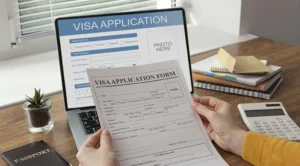
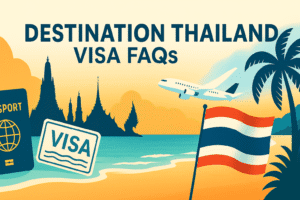
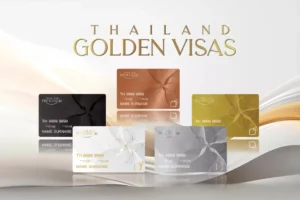
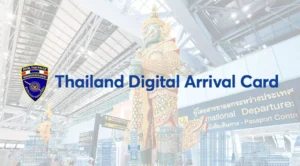

























243 Responses
Comments navigation
Hi there
My wife and I want to volunteer in Thailand. What visa do we need for that?
Hi Kael,
You will need to find a foundation or NGO in Thailand to volunteer with, as they can provide the necessary paperwork for obtaining a Non-O visa based on volunteering.
Good evening,
I am already on a 6 month tourist visa and about to do my first exit and entry before 60 days are up.
Looking to the future, would it be possible to apply for a second 6 month tourist visa down the line or is this not possible?
Hi Hope,
Whether you can obtain another 6-month METV (Multiple Entry Tourist Visa) depends on the consulate through which you apply. Many consulates limit METV issuance to one per calendar year (or within 12 months from the date of issue), though some may have different policies.
You may also want to explore whether you qualify for the Destination Thailand Visa (DTV), which offers a longer stay with multiple entries.
Feel free to reach out to our DTV team for a consultation if you’d like to explore that option.
Hello,
I am a US citizen traveling to Thailand for 60 days. Is a visa required?
I have not needed one in the past but I am hearing that a digital visa is required. If required can you send me the link to apply?
Thank you
Hi Daniel,
As a U.S. citizen, you qualify for the 60-day visa exempt entry to Thailand, so no visa is required for your stay. However, you must complete the Thailand Digital Arrival Card (TDAC) online within 3 days before your arrival.
You can fill out the TDAC form here: https://tdac.immigration.go.th/arrival-card/#/home
I am from the UK and planned to visit Thailand for holiday on 30th August until the 9th October and the flights and accomodation have already been booked.
This holiday was planned on the basis that I would be able to stay up to 60 days as is current
However if prior to August Thailand change the entry visa back to 30 days will I then have a problem entering and if so how can I resolve the problem.
I suppose there is the option of apply for a 90 day visa online prior to August but that will now be at a costs?
What do you reccommemd is the best course of action to take in my case
Thank you.
Dear Phil,
You may still use the visa exemption in your visit from August 30 to October 9. The current visa exemption is valid for 60 days from date of arrival.
However, if in case the visa exemption will revert back to 30 days, you may still use the visa exemption and you only need to apply for a 30-day extension at local immigration office for a fee of 1900 THB.
There is no reason for you to worry right now, you can use visa exemption either way.
Thank you.
I’m here in Thailand on the 180 day multi tourist visa. It finishes at end of July. I’m having a surgery with a beauty company in July.
What should I do about another visa?
Dear AMH,
If you have a 6-month METV valid until July, you can leave and re-enter Thailand one final time before your visa expires to receive an additional 60-day entry stamp. Alternatively, depending on your nationality, you may also exit and re-enter to obtain a free 60-day entry stamp.
Comments navigation